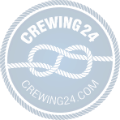
The American Society of Mechanical Engineers (ASME) and the U.S. Coast Guard (USCG) are jointly sponsoring a two-day workshop on July 24-25 in Arlington, VA, that will examine a broad range of developing technology, standards and regulatory issues impacting the marine industry.
During the general session on July 24, top officials and executives from the U.S. Coast Guard, ASME and the Bureau of Safety and Environmental Enforcement will focus on policy and strategic issues associated with developing a maritime transportation and infrastructure system that will produce a cleaner environment. This includes the impact of voluntary consensus standards and federal regulations on construction of marine equipment.
The first panel on July 24, Equipment and Materials, will discuss potential changes to the ASME PVHO code regarding the use of acrylics for diving chambers and other submersibles. The panel will also examine improvements in the design and arrangement of mooring systems for gas carriers and other large vessels, as well as the use of advanced light scattering techniques to determine oil content in water aboard a ship.
The second panel on July 24, LNG and CNG Technology, covers international experience in the use of LNG and CNG as a marine fuel. It will address why the development of LNG and CNG fuelled ships have become such an important issue within the maritime industry. It includes papers on the design, application and certification of engines, equipment, fuel tanks, and piping systems on gas fuelled ships, including the use of ASME codes.
A reception will follow the panel presentations at 5:30 PM.
On July 25, a panel will address the Human Element and Risk Management including perspectives on the nexus of human factors and safety management systems governing safety of drilling and production operations. It also presents a comprehensive strategy for implementing risk-based maintenance and inspections of towing vessel machinery and systems. Another paper discusses management and training of personnel involved with dynamic positioning operations.
The Offshore Marine Technology session covers design, testing, and applications of various offshore structures. A new ocean platform concept, the fully constrained platform (FCP), is presented which represents the technology for a new class of marine structures.
The final panel will focus on Regulatory and Classification Society. It will examine requirements in regulations, codes and performance standards that are applicable to ships and shipboard systems, offshore structures, ballast water treatment systems, exhaust gas cleaning systems for compliance with air pollution requirements and marine fire equipment. Representatives from the USCG, ABS, the National Fire Protection Association, the Exhaust Gas Cleaning Systems Association, and DNV will make presentations.
More complete details on the program are available at: http://events.asme.org/asmeuscg13/home.cfm
![[ad-side]](http://www.crewing24.com/ad_images/94_banner.png)
![[ad-side]](http://www.crewing24.com/ad_images/91_banner.png)
![[ad-side]](http://www.crewing24.com/ad_images/80_banner.jpg)
![[ad-side]](http://www.crewing24.com/ad_images/82_banner.jpg)
![[ad-side]](http://www.crewing24.com/ad_images/88_banner.jpg)
![[ad-side]](http://www.crewing24.com/ad_images/115_banner.jpg)
![[ad-side]](http://www.crewing24.com/ad_images/110_banner.png)
![[ad-side]](http://www.crewing24.com/ad_images/83_banner.jpg)
![[ad-side]](http://www.crewing24.com/ad_images/103_banner.jpg)